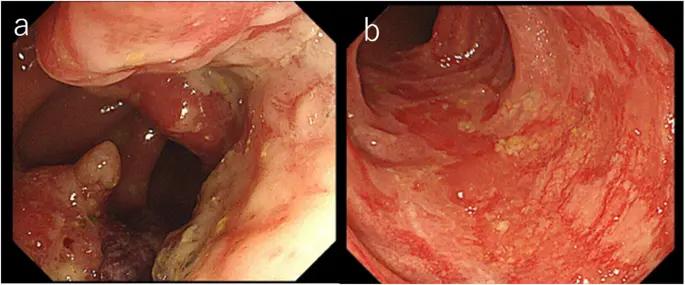Colorectal cancer also known as colon cancer or rectal cancer is one of the most prevalent type of cancer, affecting millions worldwide. While early-stage colorectal cancers often have favourable prognoses, the landscape changes drastically when cancer progresses to stage 4. This advanced stage, also known as metastatic colorectal cancer, presents unique challenges for patients and healthcare providers alike. In this comprehensive guide, we’ll delve into the defining characteristics of stage 4 colorectal cancer (stage iv colon cancer), explore the latest treatment approaches, and uncover the factors influencing outcomes for those facing this formidable diagnosis.
Understanding stage 4 colorectal cancer
Defining characteristics
At stage 4, colorectal cancer has spread beyond the initial tumour site, invading distant organs and lymph nodes. This metastatic spread is the hallmark of stage 4 disease, setting it apart from earlier stages. The most common sites of metastasis include the liver, lungs, peritoneum, and distant lymph nodes. In some cases, the cancer may even reach the ovaries in female patients.
TNM staging system
The primary method for staging colorectal cancer is the TNM system (Tumor, Node, Metastasis) system, which comprehensively assesses the cancer’s progression. This system categorises stage 2 colorectal cancer based on the depth of tumour invasion (T), the involvement of nearby lymph nodes (N), and the presence of distant metastases (M).
Stages of stage 4 colorectal cancer
Stage 4 colorectal cancer is further divided into three distinct sub-stages:
- Stage 4A: The cancer has spread to a single distant organ or site, such as the liver or lung, but has not reached the peritoneal lining of the abdominal cavity
- Stage 4B: The cancer has spread to multiple distant organs or sites, but still has not reached the peritoneal lining
- Stage 4C: The cancer has spread to the peritoneal lining, and may have also invaded other distant organs or sites
Understanding these nuanced stage 4 classifications is crucial, as they can significantly impact treatment options and prognosis.
Causes and risk factors
The development of stage 4 colorectal cancer is a complex process, influenced by a combination of genetic, environmental, and lifestyle factors. Some of the key contributors to the progression of colorectal cancer to stage 4 include:
- Genetic predisposition: Certain inherited genetic mutations, such as those in the APC, KRAS, and BRAF genes, can increase an individual’s risk of developing advanced colorectal cancer
- Environmental exposures: Factors like a diet high in processed and red meats, as well as exposure to carcinogens in the environment, can contribute to the development and progression of colorectal cancer
- Lifestyle choices: Sedentary behaviour, obesity, and a lack of physical activity have all been linked to an increased risk of stage 4 colorectal cancer
- Underlying medical conditions: Conditions like inflammatory bowel disease and type 2 diabetes may also play a role in the progression of colorectal cancer
Understanding these risk factors can help individuals take proactive steps to mitigate their chances of developing stage 4 disease.
Symptoms and diagnosis
The symptoms of stage 4 colorectal cancer can vary widely, depending on the location and extent of the metastatic spread. Common symptoms may include:
- Persistent abdominal pain or discomfort
- Unexplained weight loss
- Fatigue and weakness
- Changes in bowel habits, such as diarrhoea or constipation
- Rectal bleeding or blood in the stool
- Jaundice (yellowing of the skin and eyes)
In many cases, stage 4 colorectal cancer may not present with any noticeable symptoms until the disease has already advanced significantly. This underscores the importance of regular screening and early detection.
Diagnosing stage 4 colorectal cancer typically involves a combination of imaging tests, such as CT scans, MRI, or PET scans, to identify the location and extent of the metastatic spread. A tumour biopsy may also confirm the diagnosis and guide treatment planning.
Treatment options
The treatment of stage 4 colorectal cancer is a complex and multifaceted endeavour, often requiring a collaborative effort between oncologists, surgeons, and other healthcare professionals. The primary goals of treatment are to control the cancer, alleviate symptoms, and, in some cases, prolong survival. The specific treatment approach will depend on factors such as the location and extent of the metastases, the patient’s overall health, and their personal preferences.
Surgical interventions
In certain cases, surgical removal of the primary tumour and/or metastatic lesions may be an option. This is typically reserved for patients with limited metastatic disease that is deemed resectable. The goal of surgery is to remove as much of the cancer as possible, potentially improving outcomes and quality of life.
Chemotherapy
Chemotherapy remains a cornerstone of treatment for stage 4 colorectal cancer. A variety of chemotherapeutic agents, often in combination, are used to target the cancer cells throughout the body. These may include fluoropyrimidines (such as 5-FU and capecitabine), irinotecan, and oxaliplatin, among others.
Targeted therapies
In recent years, the development of targeted therapies has revolutionised the treatment of stage 4 colorectal cancer. These medications, such as monoclonal antibodies and kinase inhibitors, are designed to target specific molecular pathways involved in tumour growth and metastasis. Examples include bevacizumab (a VEGF inhibitor) and cetuximab (an EGFR inhibitor).
Radiation therapy
While not as commonly used as in earlier stages of colorectal cancer, radiation therapy may be employed in stage 4 disease to alleviate symptoms, such as pain from bone metastases or obstruction of the bowel.
Combination approaches
In many cases, a combination of these treatment modalities is used to maximise the chances of achieving the desired outcomes. The specific treatment plan will be tailored to the individual patient’s needs and preferences.
Prognosis and survival rates
The prognosis for stage 4 colorectal cancer is generally less favourable than earlier stages of the disease. However, advancements in treatment options have led to improved outcomes in recent years.
Overall survival rates
The overall 5-year relative survival rate for stage 4 colorectal cancer is approximately 14%. This means that 14% of patients diagnosed with stage 4 colorectal cancer will survive for at least 5 years after their diagnosis. It’s important to note that survival rates can vary significantly based on individual factors, such as the extent of metastatic spread, the patient’s overall health, and the response to treatment.
Factors influencing prognosis
Several factors can impact the prognosis for patients with stage 4 colorectal cancer, including:
- Extent of metastatic spread: Patients with stage 4A disease, where the cancer has spread to a single distant site, generally have a better prognosis than those with stage 4B or 4C, where the cancer has spread to multiple sites or the peritoneal lining
- Resectability of metastases: Patients whose metastatic lesions can be surgically removed have a better prognosis than those with unresectable disease
- Response to treatment: Patients who respond well to the initial treatment regimen, whether it’s chemotherapy, targeted therapy, or a combination, tend to have better outcomes
- Overall health: Patients with a good overall health status and functional ability are generally better equipped to tolerate and respond to the rigours of treatment
Quality of life
Managing the physical, emotional, and practical challenges of stage 4 colorectal cancer is crucial for maintaining a good quality of life. Supportive care measures may include:
- Pain management and palliative care
- Nutritional support and dietary counselling
- Psychological and emotional support
- Assistance with daily living activities
By addressing the holistic needs of patients, healthcare providers can help improve their overall well-being and quality of life, even in the face of this challenging diagnosis.
The future
The field of colorectal cancer treatment is rapidly evolving, with ongoing research and clinical trials exploring new and promising approaches. Some of the areas of focus include:
- Immunotherapy: The use of immunotherapeutic agents, such as checkpoint inhibitors, to harness the body’s immune system to fight the cancer
- Personalised medicine: The development of targeted therapies that are tailored to the specific genetic and molecular profile of an individual’s cancer
- Combination therapies: Exploring the synergistic effects of combining various treatment modalities, including chemotherapy, targeted therapy, and immunotherapy
- Early detection and screening: Advancements in screening techniques and the implementation of more effective screening tests for cancer diagnosis at earlier, more treatable stages
As these innovations continue to emerge, the outlook for patients with stage 4 colorectal cancer is expected to improve, offering new hope and opportunities for better outcomes.
Conclusion
Stage 4 colorectal cancer presents a challenge, but with advancements in treatment and a multidisciplinary approach, there is reason for optimism. By understanding the complexities of this advanced stage of the disease, healthcare providers and cancer patients can work together to navigate the journey, explore the latest treatment options, and strive for the best possible outcomes. As research continues to push the boundaries of what is possible, the future for those facing stage 4 colorectal cancer grows brighter with each passing day.
Sources
- Definition of stage IV colorectal cancer – NCI Dictionary of Cancer Terms – NCI
- Stage 4 – Bowel cancer – Cancer Research UK
- Stage IV – Colorectal Cancer Alliance
- Stage IV Colorectal Cancer – Holland-Frei Cancer Medicine – NCBI Bookshelf
Medical Disclaimer
NowPatient has taken all reasonable steps to ensure that all material is factually accurate, complete, and current. However, the knowledge and experience of a qualified healthcare professional should always be sought after instead of using the information on this page. Before taking any drug, you should always speak to your doctor or another qualified healthcare provider.
The information provided here about medications is subject to change and is not meant to include all uses, precautions, warnings, directions, drug interactions, allergic reactions, or negative effects. The absence of warnings or other information for a particular medication does not imply that the medication or medication combination is appropriate for all patients or for all possible purposes.










